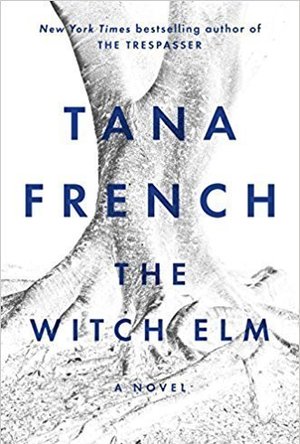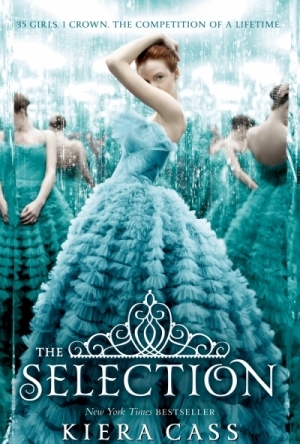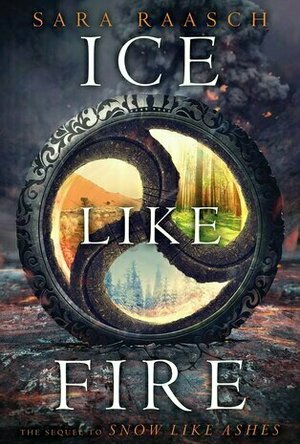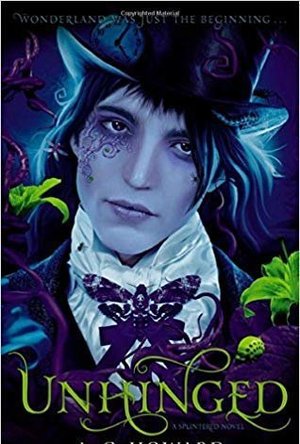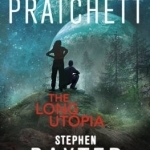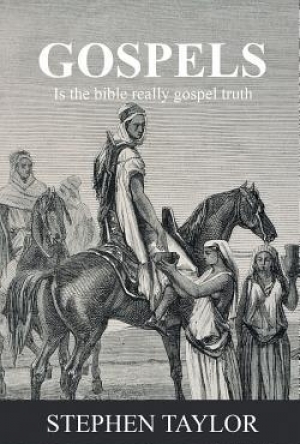Search
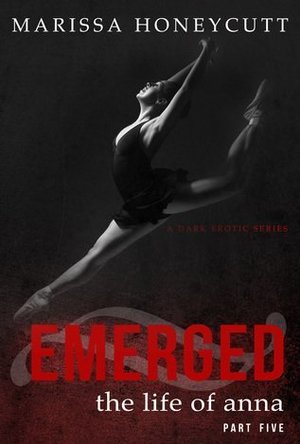
Emerged (The Life of Anna #5)
Book
Anna has escaped from Devin. Now she must learn what it is to live without a master. Yet Devin will...
Kristy H (1252 KP) rated The Witch Elm: A Novel in Books
Mar 18, 2019
Interesting but long and slow at times
Life has always been pretty easy for Toby--school, girls, job, etc. All that changes in an instant, however, after a night out with his two best friends. Upon arriving home, Toby surprises two burglars in his home. They beat him horribly, leaving him with terrible injuries that may impact his life forever. Unable to go back to work, Toby reluctantly heads to the Ivy House, his family home, where he spent many happy summers with his cousins. His Uncle Hugo is ill--with irreparable brain cancer--and Toby agrees to help care for him in his last few months. Then Toby's nephew discovers a skull in the backyard of Ivy House and everything changes again. Toby begins questioning everything he remembered about his happy childhood--and his own guilt and innocence.
This is the first "stand-alone" for Tana French, versus her group of loosely connected police procedural novels. For some reason, it wasn't quite what I was expecting, and I found myself sort of missing the detective side of things. As this is a typical Tana French novel, there are a lot of thoughts and feelings, with Toby explaining (a lot) about how he feels, how things affect him, etc. It's always something you just have to be prepared for and used to with her books. She's a wonderful writer, and the novel's setting unfolds so easily around you.
Of course, it also means that things can happen fairly slowly. The discovery of the skull, for instance, while heralded in the novel's description, doesn't happen until around 200 pages in. Those first 200 pages can be a bit slow. Things do pick up when they find the skull, but there is definitely a lot of character-driven angst that accompanied the mystery of what happened in the backyard of the Ivy House, and sometimes it was a bit much for me.
Toby has to grow on you, and the book is Toby central, with everything coming in from him and all his many ramblings. The other characters are a bit hard to like (with the exception, perhaps, of poor Hugo), which doesn't make things any easier. A lot of bickering unlikable relatives can only take you so far.
Still, I was intrigued as to what had gone down in the backyard to lead to a skull landing in a tree, and I cannot argue that French is just a lovely writer, who can weave a beautiful scene. This was an interesting novel and compelling at times, but it was a bit long, and it took me a over a week to finish, which is certainly longer than usual in my typical reading span. I never really felt excited to read it, though I often enjoyed it once I picked it up, if that makes any sense. I'll still be back to read whatever Tana French writes, of course.
This is the first "stand-alone" for Tana French, versus her group of loosely connected police procedural novels. For some reason, it wasn't quite what I was expecting, and I found myself sort of missing the detective side of things. As this is a typical Tana French novel, there are a lot of thoughts and feelings, with Toby explaining (a lot) about how he feels, how things affect him, etc. It's always something you just have to be prepared for and used to with her books. She's a wonderful writer, and the novel's setting unfolds so easily around you.
Of course, it also means that things can happen fairly slowly. The discovery of the skull, for instance, while heralded in the novel's description, doesn't happen until around 200 pages in. Those first 200 pages can be a bit slow. Things do pick up when they find the skull, but there is definitely a lot of character-driven angst that accompanied the mystery of what happened in the backyard of the Ivy House, and sometimes it was a bit much for me.
Toby has to grow on you, and the book is Toby central, with everything coming in from him and all his many ramblings. The other characters are a bit hard to like (with the exception, perhaps, of poor Hugo), which doesn't make things any easier. A lot of bickering unlikable relatives can only take you so far.
Still, I was intrigued as to what had gone down in the backyard to lead to a skull landing in a tree, and I cannot argue that French is just a lovely writer, who can weave a beautiful scene. This was an interesting novel and compelling at times, but it was a bit long, and it took me a over a week to finish, which is certainly longer than usual in my typical reading span. I never really felt excited to read it, though I often enjoyed it once I picked it up, if that makes any sense. I'll still be back to read whatever Tana French writes, of course.
BookwormMama14 (18 KP) rated The Selection in Books
Jan 2, 2019
Set many years into the future The US has undergone drastic change. Under the rule of a monarchy once again. Prince Maxon, only child and heir to the throne, is ready to find his future queen. In a lottery type draw, one young lady (between the ages of 16 and 20) from each province is selected as candidates for the throne, and for Maxon's heart. Among them is America Singer. A Five in the caste system (There are eight total). Although her becoming a part of the selection was an accident, of sorts...Will she be able to forget her past and embrace her future? There are 35 girls, and only 1 prince. Who will emerge as Queen?
It has been a long while since I have been so engrossed in a book that I couldn't put it down to go to sleep. I finally had to, as my eyes wouldn't stay open any longer, with only two chapters remaining! I kept having dreams about the book! I finished it as soon as I woke up this morning and am now anxiously awaiting to check out The Elite from the library. Since this is a book about a prince finding a wife, you can expect to have romance with a mild dystopian flair. Although I personally think the emotions are slightly intense for a YA book, it is still clean and decent. Prince Maxon is an honorable man. Parents, please use your own discretion. Kiera Cass has done a fabulous job imagining a new world of castes, monarchy, fashion, rebellion and love. (It's like The Bachelor, but way better!) Please be advised that these books do not stand alone. And once you finish The Selection you are going to want to start The Elite immediately (so do what I didn't do and place a hold on BOTH)! This book ends well, but definitely leaves you wanting more. I have also heard that The Selection is being made into a movie. Although all I could find out was that it is in pre-production. I am thoroughly enjoying this series, but I know that it won't be to everyone's taste. Keep in mind that it is a Young Adult novel and is written for that level. Happy reading! And may the odds be ever in your favor....wait....
It has been a long while since I have been so engrossed in a book that I couldn't put it down to go to sleep. I finally had to, as my eyes wouldn't stay open any longer, with only two chapters remaining! I kept having dreams about the book! I finished it as soon as I woke up this morning and am now anxiously awaiting to check out The Elite from the library. Since this is a book about a prince finding a wife, you can expect to have romance with a mild dystopian flair. Although I personally think the emotions are slightly intense for a YA book, it is still clean and decent. Prince Maxon is an honorable man. Parents, please use your own discretion. Kiera Cass has done a fabulous job imagining a new world of castes, monarchy, fashion, rebellion and love. (It's like The Bachelor, but way better!) Please be advised that these books do not stand alone. And once you finish The Selection you are going to want to start The Elite immediately (so do what I didn't do and place a hold on BOTH)! This book ends well, but definitely leaves you wanting more. I have also heard that The Selection is being made into a movie. Although all I could find out was that it is in pre-production. I am thoroughly enjoying this series, but I know that it won't be to everyone's taste. Keep in mind that it is a Young Adult novel and is written for that level. Happy reading! And may the odds be ever in your favor....wait....
Sophia (Bookwyrming Thoughts) (530 KP) rated Ice Like Fire (Snow Like Ashes, #2) in Books
Jan 23, 2020
I don't know what to say about this one. (Aside from the fact the author is just another evil writing spawn...)
Anyways. Let's get this up and out of the way: I enjoyed <i><a title="Snow Like Ashes review" href="http://www.bookwyrmingthoughts.com/2015/04/review-snow-like-ashes-by-sara-raasch.html"; target="_blank" rel="noopener tag">Snow Like Ashes</a></i> much much better than <i>Ice Like Fire</i>. In fact, it would have been <i>great</i> as a stand alone novel as well, aside from the fact it would be an open-ended ending that would probably just demand a series in the end.
<i>Ice Like Fire</i> is basically a reconstruction phrase for the Winterians, who are recovering from the harsh conditions of their work camps in Spring (or maybe another kingdom). Under Cordell's orders (and because Winter is in debt to the kingdom for their assistance in getting rid of Angra), the Winterians are mining and searching for the origins of the conduits, and the source of powerful magic. When they find the magic chasm, everyone has different viewpoints: Theron wants to open the chasm and unite the world, Meira wants to keep the chasm closed and answers, and Mather just wants the Winterians to be free.
And to hopefully accomplish all of that and gain allies, Meira and Theron set off on a journey to the other kingdoms, primarily Summer, Yakim, and Ventralli. If you ask me, nothing terribly action packed is going on in this sequel unless visiting kingdoms and seeing their traditions in action is considered "action."
But let's talk about this love triangle established from <i>Snow Like Ashes</i> and continuing with <i>Ice Like Fire</i>. Mather is compassionate and loyal and quotable, and Theron makes fantastic comments and has big dreams for the kingdoms. Both with good intentions and not exactly considered annoying thus far. I haven't actually made any progress with this love triangle – not when it comes to going with one side or another.
Ultimately, though, stay away from <i>Ice Like Fire</i>. The first book is more enjoyable, but the second book will leave readers wanting closure that won't actually happen until later on this year.
<a href="https://bookwyrmingthoughts.com/chibi-views-touch-jennifer-snyder-ice-like-fire-sara-raasch/"; target="_blank">This review was originally posted on Bookwyrming Thoughts</a>
Anyways. Let's get this up and out of the way: I enjoyed <i><a title="Snow Like Ashes review" href="http://www.bookwyrmingthoughts.com/2015/04/review-snow-like-ashes-by-sara-raasch.html"; target="_blank" rel="noopener tag">Snow Like Ashes</a></i> much much better than <i>Ice Like Fire</i>. In fact, it would have been <i>great</i> as a stand alone novel as well, aside from the fact it would be an open-ended ending that would probably just demand a series in the end.
<i>Ice Like Fire</i> is basically a reconstruction phrase for the Winterians, who are recovering from the harsh conditions of their work camps in Spring (or maybe another kingdom). Under Cordell's orders (and because Winter is in debt to the kingdom for their assistance in getting rid of Angra), the Winterians are mining and searching for the origins of the conduits, and the source of powerful magic. When they find the magic chasm, everyone has different viewpoints: Theron wants to open the chasm and unite the world, Meira wants to keep the chasm closed and answers, and Mather just wants the Winterians to be free.
And to hopefully accomplish all of that and gain allies, Meira and Theron set off on a journey to the other kingdoms, primarily Summer, Yakim, and Ventralli. If you ask me, nothing terribly action packed is going on in this sequel unless visiting kingdoms and seeing their traditions in action is considered "action."
But let's talk about this love triangle established from <i>Snow Like Ashes</i> and continuing with <i>Ice Like Fire</i>. Mather is compassionate and loyal and quotable, and Theron makes fantastic comments and has big dreams for the kingdoms. Both with good intentions and not exactly considered annoying thus far. I haven't actually made any progress with this love triangle – not when it comes to going with one side or another.
Ultimately, though, stay away from <i>Ice Like Fire</i>. The first book is more enjoyable, but the second book will leave readers wanting closure that won't actually happen until later on this year.
<a href="https://bookwyrmingthoughts.com/chibi-views-touch-jennifer-snyder-ice-like-fire-sara-raasch/"; target="_blank">This review was originally posted on Bookwyrming Thoughts</a>
Sophia (Bookwyrming Thoughts) (530 KP) rated Unhinged (Splintered #2) in Books
Jan 23, 2020
<i>Unhinged</i>, the second book in the <i>Splintered</i> trilogy, is <b>set an entire year after the events in <i><a title="Splintered by A.G. Howard" href="https://bookwyrmingthoughts.com/review-splintered-by-ag-howard/"; target="_blank" rel="noopener">Splintered</a></i></b>. With the curse broken, Alyssa finally hopes to have as much of a normal life as possible, despite the fact nothing is actually the same.
I personally thought that <b><i>Splintered</i> was better off a stand-alone</b> when A.G. Howard first takes us to her dark version of Wonderland. <b>The ending definitely could have taken two turns</b> – the book could have expanded into multiple books, or it could have been left alone.
With <i>Unhinged</i>, <b>I just didn't feel as passionate as I was with the first book.</b> Though Alyssa believes she has left Wonderland behind, Morpheus and Wonderland eventually come back to haunt her through dreams and violent paintings – something bad is going on and Wonderland needs Alyssa back now that she's taken her place as the Red Queen. <b>The sequel isn't as adventurous or dark – it just felt like something I would normally see in a novel.</b>
I don't even know how to phrase it – <b><i>Unhinged</i> focuses a lot in the human world; Alyssa's conflicted feelings between Morpheus and Jeb, and where she actually belongs.</b> I hoped the book would bring us back to Wonderland, but <b>I don't even think we even entered Wonderland – it came to Alyssa and it just wasn't as exotic or enchanting or amazing as it was back in book one.</b> Am I sounding whiny now?
That's not including Morpheus and Jeb. <b>Much as I like Morpheus and his sassiness, I just don't like him for the life of me. I <em>still</em> don't like Jeb</b> [for the life of me]. If I really had to choose between the two, I would probably pick Morpheus simply because he just seems to have more personality than Jeb. (Have I mentioned Morpheus has sass?) <b>All Morpheus seems to really care about is Red and how to finally get her out of his wings.</b> Alyssa is just... convenient enough to be used and he ends up falling in love with her in the process of "using" her.
Now I don't know if that's true. I'm sure he actually cares about her greatly considering their history, and I'm sure Jeb cares about her as well, even though he is overprotective and it probably seems endearing. They don't fight as much as they did back in <i>Splintered</i>, but I just don't feel anything for the corners of the love triangle. I just don't. <b>I feel completely indifferent about <i>Unhinged</i> altogether and I'll read the last book simply for the feeling of closure.</b>
<a href="https://bookwyrmingthoughts.com/review-unhinged-by-ag-howard/"; target="_blank">This review was originally posted on Bookwyrming Thoughts</a>
I personally thought that <b><i>Splintered</i> was better off a stand-alone</b> when A.G. Howard first takes us to her dark version of Wonderland. <b>The ending definitely could have taken two turns</b> – the book could have expanded into multiple books, or it could have been left alone.
With <i>Unhinged</i>, <b>I just didn't feel as passionate as I was with the first book.</b> Though Alyssa believes she has left Wonderland behind, Morpheus and Wonderland eventually come back to haunt her through dreams and violent paintings – something bad is going on and Wonderland needs Alyssa back now that she's taken her place as the Red Queen. <b>The sequel isn't as adventurous or dark – it just felt like something I would normally see in a novel.</b>
I don't even know how to phrase it – <b><i>Unhinged</i> focuses a lot in the human world; Alyssa's conflicted feelings between Morpheus and Jeb, and where she actually belongs.</b> I hoped the book would bring us back to Wonderland, but <b>I don't even think we even entered Wonderland – it came to Alyssa and it just wasn't as exotic or enchanting or amazing as it was back in book one.</b> Am I sounding whiny now?
That's not including Morpheus and Jeb. <b>Much as I like Morpheus and his sassiness, I just don't like him for the life of me. I <em>still</em> don't like Jeb</b> [for the life of me]. If I really had to choose between the two, I would probably pick Morpheus simply because he just seems to have more personality than Jeb. (Have I mentioned Morpheus has sass?) <b>All Morpheus seems to really care about is Red and how to finally get her out of his wings.</b> Alyssa is just... convenient enough to be used and he ends up falling in love with her in the process of "using" her.
Now I don't know if that's true. I'm sure he actually cares about her greatly considering their history, and I'm sure Jeb cares about her as well, even though he is overprotective and it probably seems endearing. They don't fight as much as they did back in <i>Splintered</i>, but I just don't feel anything for the corners of the love triangle. I just don't. <b>I feel completely indifferent about <i>Unhinged</i> altogether and I'll read the last book simply for the feeling of closure.</b>
<a href="https://bookwyrmingthoughts.com/review-unhinged-by-ag-howard/"; target="_blank">This review was originally posted on Bookwyrming Thoughts</a>
Phil Leader (619 KP) rated The Long Utopia in Books
Nov 20, 2019
The Long Earth series of books presented an intriguing idea, that of being able to 'step' into parallel Earths, each an untouched wilderness and each one slightly different until they became very different planets. How would this affect people on a personal level and how would it affect the social and political stability of the original 'Datum Earth'?
The second book, The Long War explored the political theme further with the superpowers attempting to control the equivalent populations on the other Earths - and mostly meeting resistance to any governance at all. It also introduced the concept of the Next, a super intelligent sub-species of humanity.
The third book, The Long Mars had further incredible iterations of Earth on display and also did the same thing for Mars on a quest to discover a material to use to make a space elevator. The Next also started to organise and to separate themselves from the rest of humanity.
Each of these took the original concept and gave us more interesting worlds and lifeforms. Although the law of diminishing returns was starting to bite - Earth fatigue if you like - the main interest was in seeing what new ideas the authors could wrestle for each new Earth or Mars.
That is where this book fails. It is almost exclusively interested in only one copy of Earth, which comes under direct threat. All the usual suspects - Joshua, Sally, Lobsang and the Next must join forces to prevent a catastrophe threatening the whole Long Earth. There is also a sub-plot involving Joshua's antecedents which although interesting in itself is essentially a Long Earth short story of no relevance to the rest of the plot.
Whereas the previous books had a sense of wonder at each world, this loses that completely. It is in fact a completely standard science fiction story and probably would have been better told as a stand alone story rather than being shoe-horned into the Long Earth concept, which doesn't actually add anything interesting to it. It reads very much like Baxter wanted to write a story about a Dyson motor and as he was contracted to write a Long Earth novel, that's what was used. Unfortunately even this story is not well told with stilted and flaccid dialogue, zero character development and no dramatic tension at all. It was a real struggle to read in places, there is no zip or flow to the story or writing.
Various bits of the plot don't make a great deal of sense and the ending is very lame indeed with the chain of Long Earth worlds being essentially fixed by just thinking about it. The Next decide that Stan Berg, a newly discovered one of their kind, is the only one to 'fix' this despite basically no contact. They are supposed to be super intelligent and think many moves ahead but this just struck me as absurd.
Overall, I would only suggest that Long Earth completists read this. Those who enjoy the Long Earth for its diversity and novel concepts would be better off leaving this one on the shelf.
The second book, The Long War explored the political theme further with the superpowers attempting to control the equivalent populations on the other Earths - and mostly meeting resistance to any governance at all. It also introduced the concept of the Next, a super intelligent sub-species of humanity.
The third book, The Long Mars had further incredible iterations of Earth on display and also did the same thing for Mars on a quest to discover a material to use to make a space elevator. The Next also started to organise and to separate themselves from the rest of humanity.
Each of these took the original concept and gave us more interesting worlds and lifeforms. Although the law of diminishing returns was starting to bite - Earth fatigue if you like - the main interest was in seeing what new ideas the authors could wrestle for each new Earth or Mars.
That is where this book fails. It is almost exclusively interested in only one copy of Earth, which comes under direct threat. All the usual suspects - Joshua, Sally, Lobsang and the Next must join forces to prevent a catastrophe threatening the whole Long Earth. There is also a sub-plot involving Joshua's antecedents which although interesting in itself is essentially a Long Earth short story of no relevance to the rest of the plot.
Whereas the previous books had a sense of wonder at each world, this loses that completely. It is in fact a completely standard science fiction story and probably would have been better told as a stand alone story rather than being shoe-horned into the Long Earth concept, which doesn't actually add anything interesting to it. It reads very much like Baxter wanted to write a story about a Dyson motor and as he was contracted to write a Long Earth novel, that's what was used. Unfortunately even this story is not well told with stilted and flaccid dialogue, zero character development and no dramatic tension at all. It was a real struggle to read in places, there is no zip or flow to the story or writing.
Various bits of the plot don't make a great deal of sense and the ending is very lame indeed with the chain of Long Earth worlds being essentially fixed by just thinking about it. The Next decide that Stan Berg, a newly discovered one of their kind, is the only one to 'fix' this despite basically no contact. They are supposed to be super intelligent and think many moves ahead but this just struck me as absurd.
Overall, I would only suggest that Long Earth completists read this. Those who enjoy the Long Earth for its diversity and novel concepts would be better off leaving this one on the shelf.
Molly J (Cover To Cover Cafe) (106 KP) rated A Memory Between Us (Wings of Glory, #2) in Books
Feb 27, 2019
Amazing! Sarah Sundin has done it again…….she has created another story and made it come to life before the reader and captures the reader with the love and mercy that flows through out! I love an author like that. She pulled me instantly with the characters and the storyline, and held me til the last page. It was EXTREMELY hard to put this book down. I wanted to read through the whole book in one setting to see what finally would happen at the end!
A Memory Between Us continues the Novak brothers’ story, this time, with middle brother Jack. Much like A Distant Melody, Sarah continues with a message of over coming the past and moving forward in your life, while relying on God for the redemption and love. A well created message by a super talented author. Reading Ruth and Jack’s stories was both funny, and serious. I loved all the quirkiness that Sarah threw into the story to keep the reader smiling, but I also loved the seriousness that she gave to Ruth. Ruth was a character I could relate with in many different ways. I saw myself in a lot of what Ruth did or said. She really tugged at my heart!
And let’s not forget about the handsome and charming Jack Novak! After all, this is his story. He is determined that Ruth is the girl for him, but there’s a secret from her past that’s holding her back and he’s determined to find out what it is! I loved his charming ways and his humbling attitude. If only I could find a guy as sweet and handsome as Air Corps pilot, Jack Novak…..*sigh*. His character was chiseled wonderfully and added so much to Ruth’s part of the story, as he was working his charm and getting her to like and trust him. He really captured my heart in this well written story!
This is a book that is definitely worth 5 stars, along with high recommendations to all who love a tender historical romance story…..it’s a perfect addition to the Wings of Glory series. While it is always my recommendation to read a series in order, this could easily be read as a stand alone title. If you’ve never read a Sarah Sundin novel, this is a good place to start, along with A Distant Melody, book 1 in this awesome series. I look forward to book 3, Blues Skies Tomorrow, releasing in August of 2011, and following oldest brother, Ray Novak’s story.
A Memory Between Us continues the Novak brothers’ story, this time, with middle brother Jack. Much like A Distant Melody, Sarah continues with a message of over coming the past and moving forward in your life, while relying on God for the redemption and love. A well created message by a super talented author. Reading Ruth and Jack’s stories was both funny, and serious. I loved all the quirkiness that Sarah threw into the story to keep the reader smiling, but I also loved the seriousness that she gave to Ruth. Ruth was a character I could relate with in many different ways. I saw myself in a lot of what Ruth did or said. She really tugged at my heart!
And let’s not forget about the handsome and charming Jack Novak! After all, this is his story. He is determined that Ruth is the girl for him, but there’s a secret from her past that’s holding her back and he’s determined to find out what it is! I loved his charming ways and his humbling attitude. If only I could find a guy as sweet and handsome as Air Corps pilot, Jack Novak…..*sigh*. His character was chiseled wonderfully and added so much to Ruth’s part of the story, as he was working his charm and getting her to like and trust him. He really captured my heart in this well written story!
This is a book that is definitely worth 5 stars, along with high recommendations to all who love a tender historical romance story…..it’s a perfect addition to the Wings of Glory series. While it is always my recommendation to read a series in order, this could easily be read as a stand alone title. If you’ve never read a Sarah Sundin novel, this is a good place to start, along with A Distant Melody, book 1 in this awesome series. I look forward to book 3, Blues Skies Tomorrow, releasing in August of 2011, and following oldest brother, Ray Novak’s story.
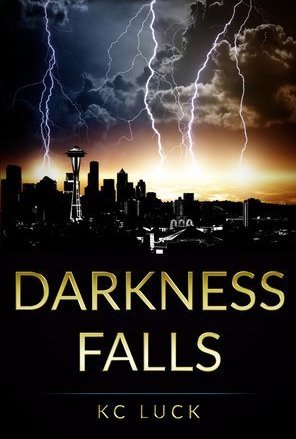
Darkness Falls
Book
If the lights go out forever, can love survive? When four women from different walks of life are...
Dystopian CME Event Lesbian Romance
Adventure and Redemption
I received this book for free through Goodreads First Reads.
Is the Bible really gospel truth? This is the question the honourable, academic Robert Babcock aims to find out on his quest to find the earliest copies of the gospels in order to prove the reliability of the story of Jesus as recounted in the King James Bible. However, this is not the key focus of Stephen Taylor’s fictional novel, Gospels. The main character is the perfidious John Campbell-John, a rogue, imposter and swindler who flees 19th-century England in an attempt to escape from his debts.
John meets the magnanimous Robert in Venice and, despite being polar opposites, become firm friends. After being honest for the first time in his life, admitting to owing thousands of pounds in gambling debts, Robert offers John the opportunity to accompany him on his quest through the deserts of Egypt. John accepts and the pair finds themselves on an adventure of discovery and personal redemption.
John and Robert make an unlikely but excellent team. Robert’s knowledge of the Bible and ancient history is vital, however, John’s propensity for falsehoods and cunningness gets them out of a few scrapes and tricky situations. Nonetheless, it is difficult for John to give up his old ways and his insular behaviour threatens to get them in more trouble.
Fortunately, Robert’s humility begins to influence the young scoundrel, as does his penchant for historical artefacts. As the story progresses, John begins to leave his past behind and becomes interested in Robert’s work, learning new things about Egyptian culture and the origins of the Bible. However, when a new gospel comes to light that threatens the whole of Christianity, Robert does not know what to do; and only John can give him counsel.
John Campbell-John is a character that the author introduced in a previous book. However, the timelines are not sequential, therefore Gospels is a stand-alone novel. The time frame for this book needed to be set in 1835 to correspond with historical truths. Although Robert’s discovery of a Gospel of Thaddeus Jude is an invention of the author, the quest itself is based on the journeys of three 19th-century Bible hunters. Stephen Taylor has conducted an enormous amount of research, including the biographies of Robert Curzon, Constantin von Tischendorf and Émile Amélineau who, on separate occasions, sought the same knowledge as the fictional Robert Babcock.
Despite being titled Gospels, the novel, for the most part, focuses on John Campbell-John and his wicked ways. Through a first-person narrative, John explains his past, his betrayal of a friend, and his addiction to gambling. Initially, he has no qualms about his behaviour and acts only for himself and his selfish greed. Whilst Robert goes in search of knowledge, John goes on a journey of redemption, coming to terms with his previous wrongdoings. However, acknowledging these faults is not enough, he needs to turn away from these roguish ways.
It is disappointing that the narrative does not focus more on the gospels, both real and imagined. There was enormous scope for an in-depth look at the life of Jesus and the inconsistencies in the Bible. The fictitious Gospel of Thaddeus Jude evokes a similar reaction in Robert as the Non-Canonical Gospel of Thomas found in the 19th-century had on many devout Christians. There was so much potential with this direction of thought, however, the author passes over it in preference to the life of John Campbell-John.
Slow to begin but increasingly interesting as it progresses, Gospels is a book of many themes. History, both 19th-century and ancient; religion, although not a Christian story; and achievement and absolution combine together to produce a unique tale that takes the reader from the back alleys of London to the River Nile and the deserts of Sinai. A subtle clue in the prologue keeps readers alert as they await the conclusion of the adventure – an ending that ambiguously reveals whether John moves on from the follies of his past.
Is the Bible really gospel truth? This is the question the honourable, academic Robert Babcock aims to find out on his quest to find the earliest copies of the gospels in order to prove the reliability of the story of Jesus as recounted in the King James Bible. However, this is not the key focus of Stephen Taylor’s fictional novel, Gospels. The main character is the perfidious John Campbell-John, a rogue, imposter and swindler who flees 19th-century England in an attempt to escape from his debts.
John meets the magnanimous Robert in Venice and, despite being polar opposites, become firm friends. After being honest for the first time in his life, admitting to owing thousands of pounds in gambling debts, Robert offers John the opportunity to accompany him on his quest through the deserts of Egypt. John accepts and the pair finds themselves on an adventure of discovery and personal redemption.
John and Robert make an unlikely but excellent team. Robert’s knowledge of the Bible and ancient history is vital, however, John’s propensity for falsehoods and cunningness gets them out of a few scrapes and tricky situations. Nonetheless, it is difficult for John to give up his old ways and his insular behaviour threatens to get them in more trouble.
Fortunately, Robert’s humility begins to influence the young scoundrel, as does his penchant for historical artefacts. As the story progresses, John begins to leave his past behind and becomes interested in Robert’s work, learning new things about Egyptian culture and the origins of the Bible. However, when a new gospel comes to light that threatens the whole of Christianity, Robert does not know what to do; and only John can give him counsel.
John Campbell-John is a character that the author introduced in a previous book. However, the timelines are not sequential, therefore Gospels is a stand-alone novel. The time frame for this book needed to be set in 1835 to correspond with historical truths. Although Robert’s discovery of a Gospel of Thaddeus Jude is an invention of the author, the quest itself is based on the journeys of three 19th-century Bible hunters. Stephen Taylor has conducted an enormous amount of research, including the biographies of Robert Curzon, Constantin von Tischendorf and Émile Amélineau who, on separate occasions, sought the same knowledge as the fictional Robert Babcock.
Despite being titled Gospels, the novel, for the most part, focuses on John Campbell-John and his wicked ways. Through a first-person narrative, John explains his past, his betrayal of a friend, and his addiction to gambling. Initially, he has no qualms about his behaviour and acts only for himself and his selfish greed. Whilst Robert goes in search of knowledge, John goes on a journey of redemption, coming to terms with his previous wrongdoings. However, acknowledging these faults is not enough, he needs to turn away from these roguish ways.
It is disappointing that the narrative does not focus more on the gospels, both real and imagined. There was enormous scope for an in-depth look at the life of Jesus and the inconsistencies in the Bible. The fictitious Gospel of Thaddeus Jude evokes a similar reaction in Robert as the Non-Canonical Gospel of Thomas found in the 19th-century had on many devout Christians. There was so much potential with this direction of thought, however, the author passes over it in preference to the life of John Campbell-John.
Slow to begin but increasingly interesting as it progresses, Gospels is a book of many themes. History, both 19th-century and ancient; religion, although not a Christian story; and achievement and absolution combine together to produce a unique tale that takes the reader from the back alleys of London to the River Nile and the deserts of Sinai. A subtle clue in the prologue keeps readers alert as they await the conclusion of the adventure – an ending that ambiguously reveals whether John moves on from the follies of his past.
<i>I received this book for free through Goodreads First Reads.
Is the Bible really gospel truth?</i> This is the question the honourable, academic Robert Babcock aims to find out on his quest to find the earliest copies of the gospels in order to prove the reliability of the story of Jesus as recounted in the King James Bible. However, this is not the key focus of Stephen Taylor’s fictional novel, <i>Gospels</i>. The main character is the perfidious John Campbell-John, a rogue, imposter and swindler who flees 19th-century England in an attempt to escape from his debts.
John meets the magnanimous Robert in Venice and, despite being polar opposites, become firm friends. After being honest for the first time in his life, admitting to owing thousands of pounds in gambling debts, Robert offers John the opportunity to accompany him on his quest through the deserts of Egypt. John accepts and the pair finds themselves on an adventure of discovery and personal redemption.
John and Robert make an unlikely but excellent team. Robert’s knowledge of the Bible and ancient history is vital, however, John’s propensity for falsehoods and cunningness gets them out of a few scrapes and tricky situations. Nonetheless, it is difficult for John to give up his old ways and his insular behaviour threatens to get them in more trouble.
Fortunately, Robert’s humility begins to influence the young scoundrel, as does his penchant for historical artefacts. As the story progresses, John begins to leave his past behind and becomes interested in Robert’s work, learning new things about Egyptian culture and the origins of the Bible. However, when a new gospel comes to light that threatens the whole of Christianity, Robert does not know what to do; and only John can give him counsel.
John Campbell-John is a character that the author introduced in a previous book. However, the timelines are not sequential, therefore <i>Gospels</i> is a stand-alone novel. The time frame for this book needed to be set in 1835 to correspond with historical truths. Although Robert’s discovery of a Gospel of Thaddeus Jude is an invention of the author, the quest itself is based on the journeys of three 19th-century Bible hunters. Stephen Taylor has conducted an enormous amount of research, including the biographies of Robert Curzon, Constantin von Tischendorf and Émile Amélineau who, on separate occasions, sought the same knowledge as the fictional Robert Babcock.
Despite being titled <i>Gospels</i>, the novel, for the most part, focuses on John Campbell-John and his wicked ways. Through a first-person narrative, John explains his past, his betrayal of a friend, and his addiction to gambling. Initially, he has no qualms about his behaviour and acts only for himself and his selfish greed. Whilst Robert goes in search of knowledge, John goes on a journey of redemption, coming to terms with his previous wrongdoings. However, acknowledging these faults is not enough, he needs to turn away from these roguish ways.
It is disappointing that the narrative does not focus more on the gospels, both real and imagined. There was enormous scope for an in-depth look at the life of Jesus and the inconsistencies in the Bible. The fictitious Gospel of Thaddeus Jude evokes a similar reaction in Robert as the Non-Canonical Gospel of Thomas found in the 19th-century had on many devout Christians. There was so much potential with this direction of thought, however, the author passes over it in preference to the life of John Campbell-John.
Slow to begin but increasingly interesting as it progresses, <i>Gospels</i> is a book of many themes. History, both 19th-century and ancient; religion, although not a Christian story; and achievement and absolution combine together to produce a unique tale that takes the reader from the back alleys of London to the River Nile and the deserts of Sinai. A subtle clue in the prologue keeps readers alert as they await the conclusion of the adventure – an ending that ambiguously reveals whether John moves on from the follies of his past.
Is the Bible really gospel truth?</i> This is the question the honourable, academic Robert Babcock aims to find out on his quest to find the earliest copies of the gospels in order to prove the reliability of the story of Jesus as recounted in the King James Bible. However, this is not the key focus of Stephen Taylor’s fictional novel, <i>Gospels</i>. The main character is the perfidious John Campbell-John, a rogue, imposter and swindler who flees 19th-century England in an attempt to escape from his debts.
John meets the magnanimous Robert in Venice and, despite being polar opposites, become firm friends. After being honest for the first time in his life, admitting to owing thousands of pounds in gambling debts, Robert offers John the opportunity to accompany him on his quest through the deserts of Egypt. John accepts and the pair finds themselves on an adventure of discovery and personal redemption.
John and Robert make an unlikely but excellent team. Robert’s knowledge of the Bible and ancient history is vital, however, John’s propensity for falsehoods and cunningness gets them out of a few scrapes and tricky situations. Nonetheless, it is difficult for John to give up his old ways and his insular behaviour threatens to get them in more trouble.
Fortunately, Robert’s humility begins to influence the young scoundrel, as does his penchant for historical artefacts. As the story progresses, John begins to leave his past behind and becomes interested in Robert’s work, learning new things about Egyptian culture and the origins of the Bible. However, when a new gospel comes to light that threatens the whole of Christianity, Robert does not know what to do; and only John can give him counsel.
John Campbell-John is a character that the author introduced in a previous book. However, the timelines are not sequential, therefore <i>Gospels</i> is a stand-alone novel. The time frame for this book needed to be set in 1835 to correspond with historical truths. Although Robert’s discovery of a Gospel of Thaddeus Jude is an invention of the author, the quest itself is based on the journeys of three 19th-century Bible hunters. Stephen Taylor has conducted an enormous amount of research, including the biographies of Robert Curzon, Constantin von Tischendorf and Émile Amélineau who, on separate occasions, sought the same knowledge as the fictional Robert Babcock.
Despite being titled <i>Gospels</i>, the novel, for the most part, focuses on John Campbell-John and his wicked ways. Through a first-person narrative, John explains his past, his betrayal of a friend, and his addiction to gambling. Initially, he has no qualms about his behaviour and acts only for himself and his selfish greed. Whilst Robert goes in search of knowledge, John goes on a journey of redemption, coming to terms with his previous wrongdoings. However, acknowledging these faults is not enough, he needs to turn away from these roguish ways.
It is disappointing that the narrative does not focus more on the gospels, both real and imagined. There was enormous scope for an in-depth look at the life of Jesus and the inconsistencies in the Bible. The fictitious Gospel of Thaddeus Jude evokes a similar reaction in Robert as the Non-Canonical Gospel of Thomas found in the 19th-century had on many devout Christians. There was so much potential with this direction of thought, however, the author passes over it in preference to the life of John Campbell-John.
Slow to begin but increasingly interesting as it progresses, <i>Gospels</i> is a book of many themes. History, both 19th-century and ancient; religion, although not a Christian story; and achievement and absolution combine together to produce a unique tale that takes the reader from the back alleys of London to the River Nile and the deserts of Sinai. A subtle clue in the prologue keeps readers alert as they await the conclusion of the adventure – an ending that ambiguously reveals whether John moves on from the follies of his past.
